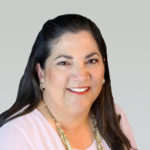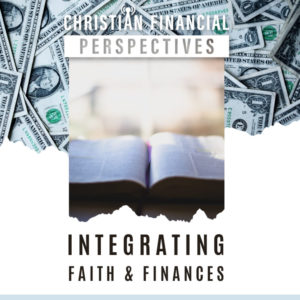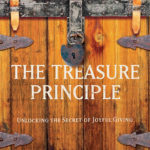Click below to listen to Episode 55 – Integrating Faith And Finances
Subscribe: Apple Podcasts | Google Podcasts | Spotify | Amazon Music | Stitcher | RSS | More
Integrating Faith And Finances
In this podcast, Bob and Mary Jo answer three questions about integrating your faith with your finances.
- Is it okay for Christians to be financially successful?
- Purpose vs Profits – can you invest for both?
- Why the decline in individual generosity?
* If you would like to get help with your philanthropic decisions like tax efficient tithing strategies, donor advised funds, charitable trusts or any of the available giving strategies, give Christian Financial Advisors a call at (830) 609-6986. We are here to assist you and your family with creating a purpose driven legacy. Together, we can create a legacy of giving for your family, regardless of the size of the gifts.
HOSTED BY: Bob Barber, CWS®, CKA® and Mary Jo Lyons, CFP®, CKA®
Mentioned In This Episode

Mary Jo Lyons, CFP®, CKA®
Want to ask a question about your specific situation? Schedule a complimentary 15 minute phone call.
EPISODE TRANSCRIPT
[INTRODUCTION]
Bob: Welcome to Christian Financial Perspectives, a weekly podcast where we talk about ways to integrate your faith with your finances. This is Bob Barber.
Mary Jo: And I’m Mary Jo Lyons.
Bob: Are you ready to learn how to apply biblical wisdom to everyday financial decisions?
Mary Jo: Join us as we look at integrating your faith with your finances. If it’s your first time listening, welcome to our podcast, and if you’re a returning listener, welcome back.
Bob: Deuteronomy 8:17-18, “You may say to yourself, my power and the strength of my hands have produced this wealth for me. But remember the Lord your God for it is he who gives you the ability to produce wealth and so confirms his covenant, which he swore to your ancestors as it is today.” So as we prepare for each weekly podcast, you know it requires a great deal of research and a lot of reading, interviewing people, and planning. And as we’ve been preparing for some recent podcast episodes, there’s three big questions that we’ve come across that we’d like to share with you today and explore them more in detail. So these questions are – Is it okay for Christians to be financially successful? Purpose versus profits, can you invest for both? And the third question is, why the decline in individual generosity in the last few years? And these are really all faith issues more than anything else. So let’s dig into it.
Mary Jo: The first one, is it okay for Christians to be financially successful? That’s a big question.
Bob: I hope so because I am [laughs].
Mary Jo: Well, yes. It’s one I’ve struggled with. So we know we’ve been called to give, but how much do we give? So it’s an interesting question, and we believe the answer is yes. One of the things I think about is the fact that we choose to live in the United States of America, a capitalist society. Some would say we don’t have a choice, but I think as adults, I would argue that we do. We could move to Canada or Europe or anywhere else if we chose to, and most of us believe we live in the best country in the world. I know I believe that
Bob: I do too. And the best state by the way.
Mary Jo: Well, yes, that goes without saying. So we should be our own country. Yeah, that’s another podcast.
Bob: And here we have our listeners in other parts of the United States saying, aww, c’mon give me a break, you Texans.
Mary Jo: They know how we are in Texas, but what makes this country so great is the potential for upward economic mobility and that our capitalist system provides, and it’s really hard to argue this point. Otherwise, why would we be having such an intense debate regarding our open borders and our ever increasing flow of immigration? If our system doesn’t work, then why does everyone want to be here?
Bob: Boy, I totally agree with you on that one. If our free enterprise system was not so great, like you say, then why are thousands upon thousands of immigrants trying so hard to get into the United States and there may be a few examples of individuals and companies that have taken advantage of our free enterprise system at the expense of others, but greed and corruption are much more present in a socialistic society. Some may believe financial success equates to selfishness and greed by having profited from a free enterprise system, but yet these same liberal voices are quick to take advantage of the many opportunities provided by capitalism.
Mary Jo: As I continue my walk, my Christian walk of faith, I learn more and more about the many faces of Christianity and the many different beliefs and points of views. What I continually find interesting is that they all have their own point of view. It’s not any different than anything else in this world. But in a study from 2011, Cox and Jones, 2011 46% of respondents believe that capitalism and free markets are at odds with Christian values.
Bob: Wow, that’s amazing.
Mary Jo: Isn’t that amazing?
Bob: Yes.
Mary Jo: God’s word warns us about the dangers of the love of money. The apostle Paul wrote in the first book of Timothy 6:10, “For the love of money is the root of all kinds of evil.” But nowhere that I’m aware of does God condemn wealth or career success. In fact, God commands us to work hard and honestly in several different biblical passages, including Psalms 90:17, “And may the Lord our God show us his approval and make our efforts successful. Yes, make our efforts successful.”
Bob: Two more scriptures I have in regards to that are Proverbs 12:11, “A hard worker has plenty of food, but a person who chases fantasies has no sense.” And Proverbs 14:23, “All hard work brings a profit, but mere talk leads only to poverty.” So the Bible has a lot to say about the use of wealth and how it impacts our lives. But you know, creating wealth with integrity and while you’re treating others with respect is a great thing. In fact, wealth creation through business has proven to lift people and nations out of poverty. And this of course only happens when stewardship is an integral part of the business mission.
Mary Jo: In the wealth creation manifesto from BAM Global, and BAM is Business As Mission, we learned several key affirmations. Business has a special capacity to create financial wealth, but it also has the potential to create different kinds of wealth for many of its stakeholders including social, intellectual, physical, and spiritual wealth. Wealth is to be shared and not hoarded. There is no wealth to be shared unless it is created. Wealth creation must also be pursued with justice and concern for the poor. If you’d like to read more, I encourage you to really search out this report. Again, it’s called the wealth creation manifesto. Included you will find a long list of biblical references regarding the pursuit of wealth through work and the resulting guidance of generosity to aid those that are less fortunate. One of the things I will say, it is a very long list and I think Bob, if I recall in one of our much earlier podcasts, we talked about the fact that the Bible references work hundreds of times, but it only references retirement, I think, once.
Bob: That’s correct. As a matter of fact, I’m going to go to my Bible gateway right now – 575 times.
Mary Jo: There you go.
Bob: That’s how many times work is in the Bible. If you just put in the word “work” like you say, on Bible gateway or any Bible app, you’re going to see it appears a lot. So, we believe God approves of wealth creation as long as biblical principles are followed along the way.
Mary Jo: Let’s say that again, Bob. I think that’s the key.
Bob: So we believe God approves of wealth creation as long as biblical principles are followed along the way. Like at Christian Financial Advisors, we are steadfast in our belief that God owns it all, and we are charged to be good stewards of what God chooses to bless us with financially. So as Christians, we’re called to manage those resources he’s entrusted to us in a manner that is pleasing to the owner of it, which is God. As Psalms 24:1 says, and we’ve coded this many times on the podcast, the earth is the Lord’s and everything in it. So we really believe God wants us to enjoy our lives with the many blessings he’s given us. And this includes enjoying the fruits of our labor. You know, it’s important to remember, however, that God owns it all, and we need to be careful of believing that a certain amount of money will provide contentment. As Paul said in Philippians 4:12, “I know what it is to be in need, and I know what it is to have plenty. I’ve learned the secret of being content in any and every situation whether well fed or hungry, whether living in plenty, or in want. So contentment should not come from wealth, but it should come from that personal relationship with Christ.
Mary Jo: Amen. You know, many believers believe that Christ made a vow of poverty and we should as well if we want to truly be followers of Christ, but I would consider this alternative, Jesus’ life should be a pattern for us to follow. One where wealth, power, position, our gifts – we are to steward. We are to use these gifts to serve others and lead others to God. Part of being a good steward is working to provide a secure financial future for those you love and are responsible for. As Christian wealth advisors and Certified Kingdom Advisors, our commitment is to help you do just that.
Bob: So we believe that what matters most is to have that personal relationship with God through his son, Jesus Christ and to be faithful with what he has so graciously enabled us to receive.
Mary Jo: Bob, I want to thank our friend John Madison, who’s a Certified Public Accountant and very strong Christian brother. He shared his insight and this in his manuscript, “A Steward Plan”. So that’s kind of where this all came from, and I thought it was some very strong food for thought.
Bob: So this takes us to the second question that we’re talking about today, Mary Jo, and those three top concerns of integrating faith and finances. And this is the question of purpose versus profits and can you invest for both? And we definitely believe you can. Today more than ever, investors can align their investments with their values, place a greater value on what their money is doing, in, and to the world rather than just what kind of return it generates.
Mary Jo: We believe that by using our investments for good versus evil, we will be spiritually blessed. Supporting companies that are biblically responsible can be a blessing in our communities and our world, and it’s a win for everyone.
Bob: You know, just like we vote for a political candidate that aligns most closely with our Christian values? Now, We can also vote with our investment dollars to help influence companies to make those right moral choices. And when you own individual stocks of companies, you could even attend a stockholder meeting to make your voice known. Our BRI portfolios, or Biblically Responsible Portfolios, support those investment managers who are very active in this process.
Mary Jo: As strong Christian believers, we believe the Bible and the truth within it has the answers to life’s questions, and this is true for both our personal lives as well as our professional lives and the companies we choose to associate with and invest in. BRI allows the investor to make an impact for good in an otherwise crowded landscape of investment choices. We all want to be purposeful in our lives and thus we have a choice to make, especially with our investment portfolios. We encourage you to vote your values by supporting a BRI strategy with your investments. This has the potential to provide both purpose and profit. We are called to be good stewards of our God given resources. This is what stewardship is all about.
Bob: Along those same lines, we’re talking about voting. It just doesn’t make sense to me to vote for someone with conservative values and then turn around and invest in companies that support liberal values and liberal candidates. Recently, I came across a quote from Inspire Investing that says, “In God’s economy, how you make money is more important than how much you make.” So are you ready to vote with your investment dollars and honor the Lord? If you are, then you can give us a call and we’ll show you how to do that at (830) 609-6986 or visit our website at ciswealth.com
Mary Jo: That brings us to our third big question. Why the decline in individual generosity?
Bob: Well, let’s take a look first at 2 Corinthians 9:7 because I like what it says that, “Each of you should give what you’ve decided in your heart to give, not reluctantly or under compulsion. For God loves a cheerful giver.” We really live in a time of great prosperity despite continued volatility in the markets. But in a report that we looked up called Giving USA 2019, the trends reveal some interesting facts like the number of households that give has declined in 2018. Even though the report was done this year, that was referring back to last year, and this could be bad news for community based nonprofits and local churches, but the amount of money given through mega gifts from the ultra wealthy actually increased.
Mary Jo: A statistic we found interesting is giving to religious causes is estimated to have declined by 1.5%, but giving to international affairs increased 9.6%, revealing we are indeed becoming a global marketplace. We are hopeful that some of the giving to international affairs is being directed towards those faith-based, global initiatives and humanitarian causes resulting from natural disasters. This could explain the drop in giving to local religious organizations. More people are giving to these big global causes. Another alarming trend is the decline in donations for smaller and mid level donors versus those of the mega wealthy. Some of this is likely due to our changing tax policies. With these changes what we are likely to see is bigger donations but less often, and that’s due to the bunching of expenses to meet the standard deduction. We probably won’t be able to do that every year, but maybe every other year and thus you can bunch some of those expenses and take advantage of that standard deduction or itemizing deductions rather. But we probably won’t be doing that as frequently. The new laws really require more end of year tax planning than in previous years. So, you know, we need to be thinking about engaging our accountants and actually consulting with them more than we’ve done in the past.
Bob: What I think it really comes to, giving our money, it comes down to risk and faith. We invest according to our risk tolerance, but we also give according to our faith and risk tolerance. You say, “What?” You may ask, “What do you mean exactly?” Well, in financial planning, the big question is always how much is enough? So to answer this question requires a great deal of speculation of what the future holds. And we don’t know how long we’re all gonna live. How high inflation will be? Will we get sick? Will our kids need any help? You know, you get the picture. So the future’s unknown. For those of us not included in the mega wealthy, this makes giving during life a bit more difficult. That’s because many don’t know exactly how much they’ll need to live comfortably for the rest of their lives. And this is why giving at death for so many is so much easier than giving while living
Mary Jo: Bob, it’s such a faith question. We just open our hearts. The Bible tells us we’re going to be rewarded, but I know that’s kinda hard. We want to make sure that our needs are met till our last breath. And that’s a tough one.
Bob: It is. There’s no doubt it’s a faith question or a faith issue.
Mary Jo: Yes. Giving during life and at death both come with risk. A common concern for many are both privacy and publicity. It’s a double edged sword. Some want to maintain their privacy, but some want a very public thank you. But some want both. And the other big risk is family concerns. Do my children have certain expectations and what is my responsibility to meet those expectations? I’ve given generously to my children over the years, but do they expect to receive even more in the way of an inheritance? Part of me wants to leave my children a financial legacy and part of me wants to leave a legacy that will impact the kingdom and causes that we all care about. I’m torn, and I don’t know which is the right approach.
Bob: You know, I like the quote in Randy Alcorn’s book “The Treasure Principle”, that you can’t take it with you but can send it on ahead. Have you ever heard that one before?
Mary Jo: I have, and it’s a great book.
Bob: He supports this with 6 treasure principle keys, he calls. God owns everything. I’m his money manager. My heart always goes where I put God’s money. Boy, that’s a good one. Heaven, not earth, is my home. I should not live for the dot life on earth, but for the line eternity in heaven. Giving is the only antidote to materialism. And God prospers me not to raise my standard of living, but to raise my standard of giving. Man, I’m telling you, that goes so against what the world says, so why not both, though? Giving while you’re alive, by faith, and at death is what I say, and it’s the question I say. It really all starts with open communication. Maybe it’s time to have that money conversation about all of the above. We can help you facilitate it by keeping the conversation on track and focus on what’s most important, like creating that family legacy, giving now and later in one that meets the needs of everybody
Mary Jo: Leaving an impactful legacy is about establishing values that guide the generations that follow. I find it heartwarming when I read stories or see interviews with families that have stood for something consistent from generation to generation. Sometimes, it may be a sports franchise. Sometimes, it’s a family owned company. Sometimes, it’s a music legacy. Or it may be even a political dynasty, but most often it involves a shared passion or purpose. Sometimes, it even involves a deep faith and a desire to be disciples of that faith.
Bob: You know, I think about that music legacy and how families will sit around the piano and sing together during Christmas and Thanksgiving and 4th of July. That’s a really neat legacy and I know people that do that and it’s really neat.
Mary Jo: You look at every musician out there or every singer and more often than not, they all come from a family that all played music together.
Bob: You’re right. They did. If you’ve been blessed beyond your needs and you’re fortunate enough to be able to leave a significant financial legacy, our hope is that you would choose to open your heart and give generously for kingdom purposes. The giving toolbox, as we call it today, is forever changing and there’s more tools today available than ever before where we can customize your giving. One of the ideas that moves my heart is the idea of creating an intentional family culture rather than merely a culture by default, which is often the case. So have you thought about how you’re teaching your kids and your grandkids to give of their time, their talent, and their treasure? There’s so much joy in giving as a family, and this is where you can find true contentment.
Mary Jo: These are such big questions and a very thoughtful approach in some of us to pray about, think about, and really see how they fit into our family. If you’d like to get help with your philanthropic decisions like tax efficient tithing strategies, donor advised funds, charitable trusts, or any of the available giving strategies, give Bob or I a call. We are here to assist you and your family with creating a purpose driven legacy. Together, we can create a legacy of giving for your family regardless of the size of the gifts.
[CONCLUSION]
Mary Jo: You’ve been listening to Christian Financial Perspectives. Join us next week as we explore more about how to apply biblical wisdom to your financial situations.
Bob: To make sure you don’t miss any of our podcasts, you can subscribe to Christian Financial Perspectives on iTunes, Google Play, or Stitcher. To learn more about integrating your faith with your finances, visit out website at ciswealth.com or call 830-609-6986.
Mary Jo: That’s all for now until next week.
[DISCLOSURES]
Comments from today’s show are for informational purposes only and not to be considered investment advice or recommendations to buy or sell any company that may have been mentioned or discussed. The opinions expressed are solely those of the hosts, Bob Barber and Mary Jo Lyons. Bob and Mary Jo do not provide tax advice and encourage you to seek guidance from a tax professional. Investment advisory services offered through Christian Investment Advisors Inc. DBA Christian Financial Advisors, a registered investment advisor.











